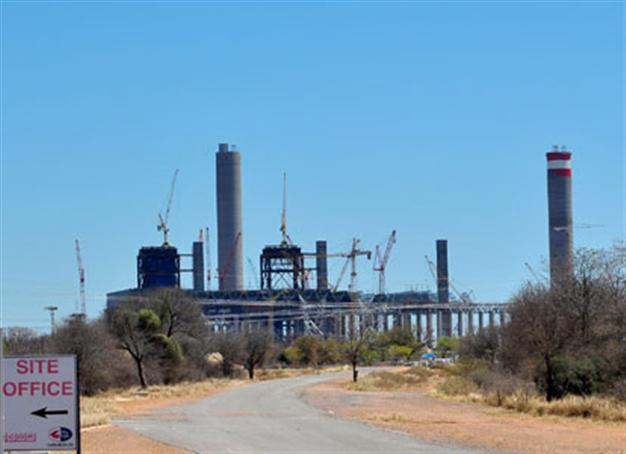UN conference to deal with carbon reductions
DURBAN - The Associated Press

AFP Photo
The U.N.'s top climate official said Sunday she expects governments to make a long-delayed decision on whether industrial countries should make further commitments to reduce emissions of climate-changing greenhouse gases.
Amid fresh warnings of climate-related disasters in the future, delegates from about 190 countries were gathering in Durban for a two-week conference beginning Monday. They hope to break deadlocks on how to curb emissions of carbon dioxide and other pollutants.
Christiana Figueres, head of the U.N. climate secretariat, said the stakes for the negotiations are high, underscored by new scientific studies.
Under discussion was "nothing short of the most compelling energy, industrial, behavioral revolution that humanity has ever seen," she said.
Archbishop Desmond Tutu led a rally at a soccer stadium later Sunday urging negotiators to be more ambitious during what were expected to be difficult talks. Unseasonably cold, windy weather kept the crowd to a few hundred spectators.
Hopes were scrapped for an overall treaty governing global carbon emissions after the collapse of talks at a climate summit in Copenhagen two years ago. The "big bang" approach has been replaced by incremental efforts to build new institutions to help shift the global economy from carbon-intensive energy generation, industries and transportation to more climate-friendly technologies.
But an underlying division between rich and poor countries on the future of the 1997 Kyoto Protocol has stymied the negotiators.
Figueres said she hoped for a decision on extending emission reduction commitments under the Kyoto accord, which has been postponed for two years. Previous commitments expire next year.
"It's a tall order for governments to face this," but they show no interest in yet another delay, she said.
High on the conference agenda is the management of a fund scaling up over the next eight years to $100 billion annually to help poor countries cope with changing climate conditions.
Questions remain how the money will be governed and distributed, but more immediately, how those funds can be generated from new sources beyond established development channels from the West.
Ideas on the table include a carbon surcharge on international shipping and on air tickets, and a levy on international financial transactions — sometimes called a Robin Hood tax.
A committee of 40 countries worked for the past year on drawing up a plan to administer the Green Climate Fund, but agreement on the final paper was blocked by the United States and Saudi Arabia, and the final contentious issues will have to be thrashed out in Durban.
Todd Stern, the chief U.S. delegate, said the negotiations had been too rushed.
"I am pretty confident that we're going to be able to work these things out," he told reporters last week, without naming the problematic issues.
But Figueres said the future of the Kyoto accord, which calls on 37 wealthy nations to reduce carbon emissions 5 percent below 1990 levels by the end of next year, is the most difficult political issue that nations face.
"If it were easy we would have done it years ago," she said.
Poor countries want the industrial nations to commit to more cuts for a second period, saying the protocol is the only legal instrument ever adopted to control carbon and other gases that trap the Earth's heat.
But the wealthy countries, with growing consensus, say they cannot carry the burden alone, and want rapidly developing countries like China, India, Brazil and South Africa to join their own legally binding regime to slow their emissions growth and move toward low-carbon economies.
"We need to protect the Kyoto Protocol as the bedrock of the global climate regime," Tim Gore, the climate strategist for the aid agency Oxfam International, told The Associated Press.
In the weeks preceding the conference delegates have been bombarded by new research and scientific reports predicting grim consequences for failing to act.
The U.N. weather agency reported last week that greenhouse gases have reached record-level concentrations in the atmosphere since the start of the industrial era in 1750. New figures for 2010 from the World Meteorological Organization show that carbon dioxide levels are now at 389 parts per million, up from about 280 ppm 250 years ago.
This week the weather agency is due to report on global temperatures for 2011, which are expected to show a continuing long-term trend of global warming. The Geneva-based agency said last year that 2010 was the hottest year in the books.
The Nobel prize-winning Intergovernmental Panel on Climate Change said "unprecedented extreme weather" caused by global warming will become increasingly frequent and make some places unlivable.
















